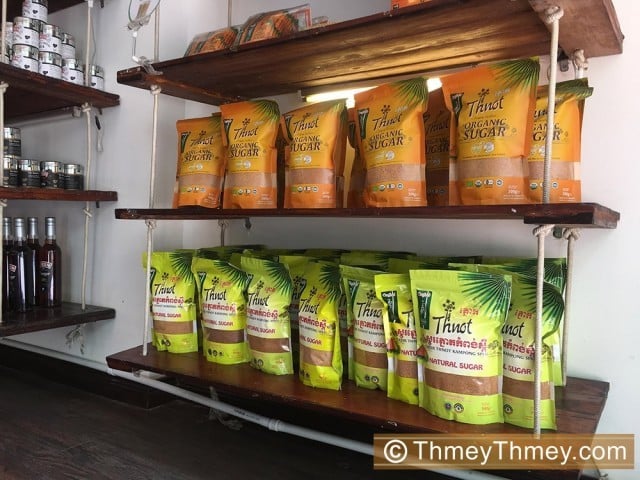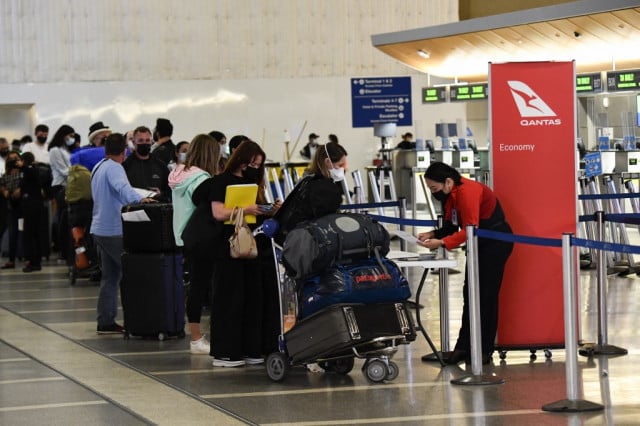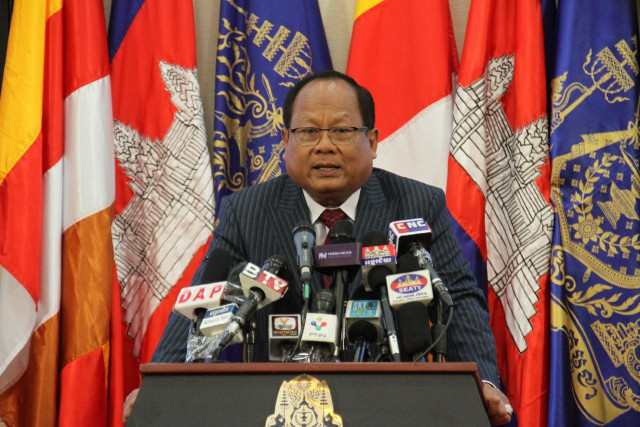Kampong Speu Palm Sugar Is in Demand on the International Market

- By Nhoek Samoun
- November 27, 2022 3:45 PM
PHNOM PENH — The Kampong Speu palm sugar may get on the Chinese market in 2023 while the product has gained popularity in Japan, Taiwan, Thailand and Vietnam as well as in Western countries such as France, Germany and the United States.
According to Vy Veasna of the Kampong Speu Palm Sugar Promotion Association (KSPA), the districts of Ang Snuol in Kandal province, Odong and Samraong Tong in Kampong Speu province are the first areas targeted to produce palm sugar for export.
In a day, farmers produce an average of 15 kilograms of powdered palm sugar or thick palm sugar per family, he said.
One kilogram of powdered sugar costs 7,000 riels or roughly $1.75. Palm sugar costs 5,000 riels to 5,500 riels, that is, $1.25 to $1.40. Currently, KSPA exports most of the powdered palm sugar to the international market, while most of the thick palm sugar is sold domestically, Veasna said.
The association was established to support the increasing popularity of palm sugar as good quality sugar is being produced, he said. “Thick palm sugar is made from palm juice stirred over heat until it turns into thick sugar.
“Powdered palm sugar is ground into sugar and then beaten into a powder similar to [regular] sugar,” Veasna said.
A total of 76 tons of powdered sugar and more than two tons of thick palm sugar have been exported to France, Germany, the United States and, in Asia, to Japan, Taiwan, Thailand and Vietnam in 2022, he said.
As for 2023, the Cambodian Embassy in China and KSPA are currently negotiating palm sugar purchases with companies in China, Veasna said. Hopes are that 50 percent of the Kampong Speu palm sugar available will be exported to China, he added.
Chhin Chhorn, a member of KSPA, said that she has been making palm sugar for about four years in order to support her family.
Her husband climbs 25 palm trees every day and is able to produce 30 kilograms of thick palm sugar per day with one kilogram being sold 6,000 riel or $ 1.50.
At around 3 pm every day, Chhorn and her family go to fetch the palm juice and stir it over heat to produce sugar.
“I make sugar using firewood and all my strength—not machines,” she said. “And sugar is made in a hygienic way because, if it is not, the association will not purchase my products.”
While Chhorn's business greatly contributes to her family’s livelihood, the work is really demanding and challenging, she said. “I am worried about my husband’s safety, climbing tall palm trees,” she said.
Palm-tree climbing takes place from December to the end of May.
In 2010, Kampong Speu palm sugar was designated as a Geographical Indication (GI) by the Cambodian government. According to the Food and Agricultural Organization of the United Nations, “[a] Geographical Indication (GI) is a sign used on goods that have a specific geographical origin and possess qualities or a reputation that are due to that origin.”
Kampong Speu palm sugar in 2019 was also registered as an EU-protected product by the European Union.















